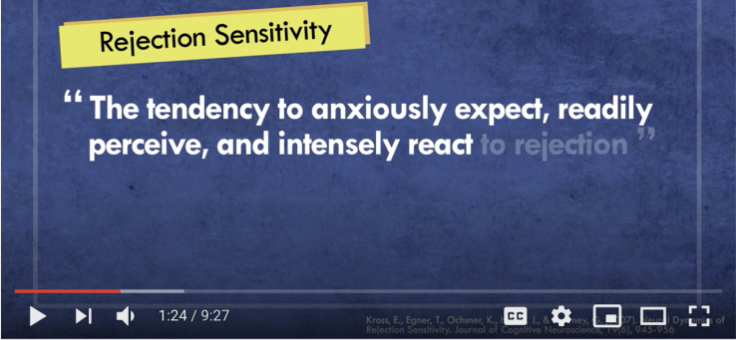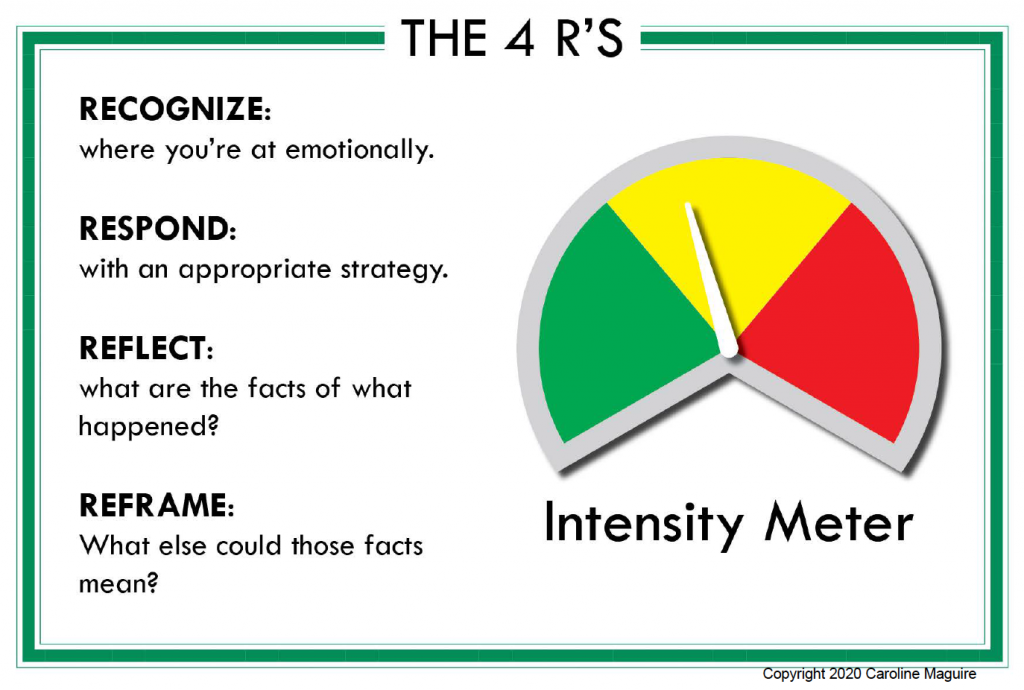How To Stop Letting Things Bother You So You Don’t Take Things So Personally

A rebuff, sideways glance or roll of the eyes can make us question our worth. Why is this and how do we stop letting things bother us? What is it that makes us cringe when we see friends out together and we weren’t invited? Why do we fear a rebuff when our invitations are denied or ignored? Is it just us, or does everyone feel this way?
Rejection Sensitivity
Taking things personally weighs on us and drains our energy. Due to Rejection Sensitivity, many adults – especially those with ADHD – may feel badly about something that isn’t even about them.
Our brain is hardwired to focus on the negative (to protect us from danger) so we therefore tend to focus on the negative stories we tell ourselves.

8 Ways to Stop Letting Things Bother You:
Don’t Jump to Conclusions
Before you jump to conclusions about an actual or perceived slight, look or oversight, consider instead, “What else could it be?” Learn to walk in their shoes [learn more p 226 – 237 in Why Will No One Play with Me?]. Evaluate the evidence to support this perception. Could it be something else? Perhaps they forgot, did not see you, missed your message or had a personal reason they were unable share. Double check your reasoning by asking yourself questions, such as: “What story am I telling myself?” “What evidence is there that this story is true?” “What else could it be?”
Reframe Your Negative Self-Talk
Negative self-talk can bombard you; encasing you in your own hurtful prison. It hurts performance and increases the tendency to enter fight, flight or freeze mode. No matter what the root-cause, you deserve to feel there is a path forward.
You may be sensitive, empathic and thoughtful and expect the same in others. These traits may cause you to take on unnecessary burdens. When others disappoint, you feel it personally. Reframe your negative talk and practice self-compassion. Is your negative self-talk creating this negative picture? Instead, tell yourself that it is NOT about you. Unless and until someone tells you that it is your fault, don’t take it on. More than likely, the other person was busy and didn’t even consider the impact of their actions.
Could It Be From a Past Hurt?
Check in with yourself. Could a past experience be coloring your lens? Separate facts from fiction. Have things been hard on you lately? When your thalamus is on high alert, it recognizes elements from the past and sounds an alarm in your brain. Your thalamus wants to alert, and protect you, from a past situation. An emotional reaction does not prove that something is true. Could you be interpreting this situation based on anxiety and assuming the worst?
Who is Giving Their Opinion?
Do you value this person’s opinion? Is the relationship new or old? Valued and reciprocal? Do they tend to be critical, often late, ignore texts, make zinger comments or engage in other behavior that irritate you? Ask yourself, “Does this person’s judgement count or hold up?”
Stop Letting Things Bother You by Halting the Negative Rumination Cycle
Honor and name your feelings. Identify the triggers, the impact, and acknowledge the wound it has created in your body and mind. Have you started to spiral and enter fight, flight or freeze mode? Is this bringing up past feelings? To stop dwelling and ruminating, shift your physical circumstances with a “pattern interrupt.” Modify your thoughts with pre-arranged strategies intended to halt the negative ruminative cycle. This may be changing your environment, listening to music, engaging in physical activity, practicing mindfulness or seeking out a pleasurable activity.
Create Self-Protection Strategies
Ramp up your self-talk, create self-protection strategies and limit your contact with critical people who are prone to treat you badly. Remind yourself that this is their negative, critical self-talk. As one of my clients says, “This is a THEM problem not a ME problem.” Seek and nurture a circle of supportive people who do not engage in emotionally toxic behavior.
Take an Honest Look
Sometimes people share constructive feedback. In this case, you can say, “I am working on this.” Before you allow yourself to fall into the rumination cycle, take an honest looks at the situation or advice. If feedback is given in the right way, it can promote positive self-evaluation. If not given in the right way, remind yourself of your strengths, your values and reframe with more positive self-talk. Most importantly, have pride in how far you have come!
Don’t Give Your Power Away –
By allowing others to upset you, you are in effect allowing them to dictate how you feel. Don’t give them power over you. Instead, quickly change your thought, take a few deep breaths and tell yourself this is a THEM problem.
You Know Who You Are. Stop Letting Things Bother You!
Rely on yourself to know what is true about you. Don’t put your trust into someone else to define who you as a person. If you take things personally, you tie yourself to someone else’s judgement. You are not a victim nor a prisoner, so don’t go down the rabbit hole of rumination and self-doubt.
Social Skills Deeper Dive
Adults with ADHD Social Skills Training: How to Get Along with Everyone February 2022
How to Coach Your Child – Kids need good role models. Skills like listening and communication are critical. This exclusive program for parents teaches how to coach your kids for life.
Adults with ADHD Social Skills Training: How to Get Along with Everyone – 2-Part Seminar with Caroline Maguire
Rusty Social Skills Bundle – Everything you need to help students return to the classroom for the development of critical social skills.
Coaching Conversations Video Course – How to use the lessons in Why Will No One Play with Me? in everyday life using real people and real scenarios
From “Hi” to a Full Conversation – How to adapt conversation starters to initiate small talk.
Joining a group Infographic – Make joining a group less intimidating – and more fun!
Building a Conversation Infographic – Learn how to engage in reciprocal give-and-take
Steps for Joining a Group Video – Step by step details to comfortably and successfully join a group
How to Read the Room as an Adult – Managing perceptions and engaging successfully
How to SEL – HOW TO help children build social skills
How to Help the Socially Awkward KidPost navigation


